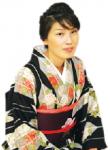2020/11/13
Easy Peasy Japaneasy - 話せればいいってもんじゃない

学習者の観点から、ちょっと日本語と日本文化を見てみませんか。
日本人では気付かない鋭い指摘に、あなたはどこまで答えられますか。
Let me share with you some real stories happening to students –
how much do you know about Japanese language and its culture?
| 話せればいいってもんじゃない |
皆さんは、どうして日本語を勉強していますか。話したいから? 自分の意見を言いたいから?
日常会話に支障なく、自己主張もできるレベルのDavyさん。 彼を担当する先生が、ある日のレッスン中、彼にこんな事を言われたと嘆いていました。「先生、この練習は意味がないよ」。本人に悪気はないのは充分承知ですが、先生にとってはぐさりと突き刺さる厳しい言葉。 いくら上手な日本語で正当な意見を述べても、相手の意見を真っ向から否定しては、日本人社会では少し受け入れられ難いものです。 自分の意見が受け入れられるかどうかは、その表現方法で決められると言っても過言ではありません。
オーストラリアで大企業の部長だったNealさん。ある時、日本企業の求人を見付け、自分の見解もしっかり持ち合わせる自信家の彼は、日本での面接にまでこぎつけました。そんな彼が、「君は日本で働くという事が分かってないようだ」と面接官からの厳しい言葉をおみやげに、半泣き状態で帰ってきました。"きちんと自分の意見やその会社の改善案を伝えたのに…。どうやって話したのか聞いてみると、Nealさんは「いえ、それは違います。もっと~した方がいいです」を連発していました。 もしかしたら、その言い方が面接官の気に障ったのかもしれません。
話せるだけではなく、配慮した表現を使うのは大切です。では何と言えば良かったのでしょう?
「すみませんが、この練習はちょっと…(意味がありません。←日本人ははっきり言わない方が良しとされます)」 。
「私もそう思います(←全面反対せず、まず相手を認める)。更に、もっと~したらいいとも思うのですが…(←断定を避ける為「~と思う」をつける)」 。
「私もそう思います(←全面反対せず、まず相手を認める)。更に、もっと~したらいいとも思うのですが…(←断定を避ける為「~と思う」をつける)」 。
次のDavyさんとのレッスンは、“控えめに意見を述べる”。その後Davyさんは、最後を省略したり、~と思う、というフレーズが良く使えるようになり、それ以来先生を傷つける事はなくなったようです。 それにしても、日本人に意見を言うのって少し面倒くさいですね。
| HOW you say is more important than WHAT you say. |
Why do you want to learn Japanese? For chatting with friends? For giving your opinions?
Davy's Japanese is at a good level. His teacher was disappointed to hear the following during their lesson. “KORE WA IMI GA NAI” (I don't understand the point(of this exercise)).” We know that he was not try to offend but…. It is not acceptable in Japanese society to object explicitly to your boss/ teacher/ supervisor,even though you are giving a valid opinion in perfect Japanese. That is, it depends on HOW you deliver it, rather than WHAT your opinion is.
Neal is a manager at a big Australian company, and is a hard worker with a great work ethic. One day he found a classified ad for a Japanese company, and he was asked for an interview in Japan. After the interview, he came back disappointed. Even though Neal shared many great opinions and his ideas for improvement for the company, the interviewers said he did not understand what working in Japan is like. I asked him how the interview went and noticed he used lots of “That is not right, it is better for your company to do~.”(IE,SORE WA CHIGAIMASU. MOTTO ~SHITAHOUGA II DESU.) I think that maybe the interviewers thought Neal’s behaviour was a bit objectionable and forward.
Perhaps you know that giving your opinion to Japanese people needs deep consideration. How should Davy and Neal have given their opinions?
“I am sorry but this exercise is a bit… (*We avoid saying clearly by often omitting the ending).”(SUMIMASEN GA, KONO RENSHUU WA CHOTTO…)
“I think so, too. (*Don't object first). In addition, I think this is also a good idea for~ (*Using “I think” to avoid assertion). (WATASHI MO SOU OMOIMASU. SARANI, MOTTO ~ SHITARA II TO OMOUNODESUGA…)
“I think so, too. (*Don't object first). In addition, I think this is also a good idea for~ (*Using “I think” to avoid assertion). (WATASHI MO SOU OMOIMASU. SARANI, MOTTO ~ SHITARA II TO OMOUNODESUGA…)
Davy’s next lesson was “to give opinions modestly” - now he knows the above technique.Please don't think it is troublesome to give opinions to Japanese people, as you know a bit of technique now!
 Japaneasy 日本語学校
Japaneasy 日本語学校

M: 0422-266-308
W: www.japaneasy.com.au
E:reception@japaneasy.com.au
Level 1, 152 Little Lonsdale St. Melbourne
W: www.japaneasy.com.au
E:reception@japaneasy.com.au
Level 1, 152 Little Lonsdale St. Melbourne
Japaneasy日本語教師養成講座420時間コース 受付中!
★メルボルンで日本語教師の資格を取って活躍の場を広げよう★
★メルボルンで日本語教師の資格を取って活躍の場を広げよう★
